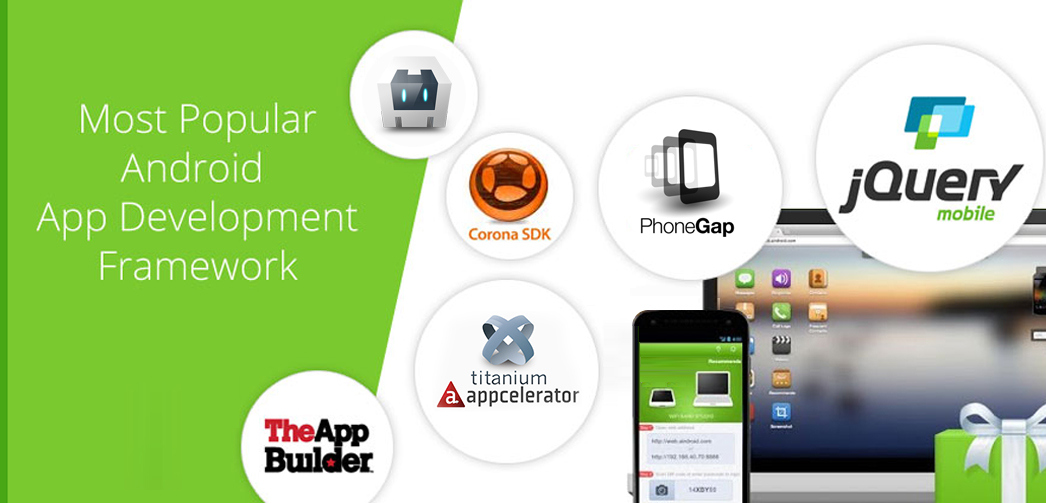
When it comes to choosing the right framework for Android apps, developers have tough decisions to make – decisions like which framework will work excellently? How to convert an iOS application into Android? And so on.
Today, with the growth of mobile devices in this competitive world of app development, every programming language comes with a framework be it for iOS, Android or Windows. The key purpose of an ideal framework is to enhance the efficiency of an app by decreasing the actions. This saves developer’s time to solve other important issues in the app.
For developers who are into converting web apps to mobile, cross-platform mobile app framework is an ideal choice. The role of a framework is to help Mobile app developers to transmute their mobile app from one network to another. Android app framework makes the whole experience easy and adaptable.
Why Android Platform?
Usually, due to its flexible nature, android is considered to be the best operating system when developing a mobile application as it can be used on multiple devices.
With the power to run millions of mobile devices, Android has become the most preferred platform for developers. It comes with inbuilt tools to help app developers to work easily on difficult functions of coding. Android provides huge competence and opportunities for developers. An ideal Android app framework must support HTML5 or JavaScript although most support both, as well as CSS.
While choosing on the right Android app development framework, a developer should keep in mind the flexibility it offers, its track record, language that the framework can certify development in and so on. To help you develop high-end apps for mobile, here is a list of top 5 best Android app development frameworks of 2016.
1. Titanium by Appcelerator: Titanium, one of the biggest mobile app development framework, lets you create local mobile applications from a single JavaScript code base. The framework has over 3 billion devices running on Appcelerator. As compared to the other web-oriented frameworks, Titanium uses JavaScript programming language to create apps with high performances. Titanium is basically famous for its performance and massive features. It even provides foolproof mobile test automation that is very helpful in saving a lot of time.
2. TheAppBuilder: One of the most vibrant frameworks, TheAppBuilder framework is built in HTML5. It comes with an easy and simple codeless and drag-and-drop interface that allows developers to build apps fast and instantly. The biggest advantage of TheAppBuilder is that it allows a developer to directly submit the app to Google Play and also has enormous social networking integration.
3. Jquery Mobile: Known as the best HTML5 framework, Jquery is also a light-weight touch-optimized framework. The biggest advantage of Jquery is its responsive nature which means a developer can write one version of the code and it will be accessible on all devices such as desktop, tablets and smartphones. In fact, the app will not only run on several devices, but also on different operating systems.
Jquery can either be downloaded in its latest stable version or as a custom download. Jquery offers feature like progressive enhancement, themeable design, semantic markup, and so on. Jquery is ideal for developing simple apps that can run on iPhone and BlackBerry.
4. PhoneGap: PhoneGap android development framework, which is funded by Adobe and Apache, can easily build mobile apps using web technologies. It allows developers to immediately see changes while he is making the apps. Also, being a cross-platform application, PhoneGap is built for HTML5, CSS as well as JavaScript development. The framework is more used like a package deployment instead of a whole development environment. It comes with integrated Cordova WebView and most support optional integration.
5. CoronaSDK: Known as one of the best mobile app development frameworks for beginners, CoronaSDK adds complex features very easily and can also be used to develop exceptional applications in no time. It uses an easily adaptable language called Lua, instead of the standard language while developing. It is commonly used by developers to develop magnificent mobile games and apps super fast. CoronaSDK comes with over 500 APIs, built-in engine and native UI support, and therefore, developers find it hard to resist this framework.
Final Note
As the world is certainly going to be more mobile savvy, every developer should try each of the above mentioned 5 Android app development frameworks. They all are open sources with at least some version of a free app. Developers need to accept that cross-platform mobile development is here to stay and choosing the right mobile application framework will help them to achieve their goal.
Want to create an awesome Android Application? We are here to help! Check out our portfolio and contact us today to discuss your requirements.



You missed some of the biggest leaders here e.g. React Native, Codename One and Xamarin.
Hi Ken,
Thanks for your value addition and everybody is having his own set of parameters to Judge and I respect your choices as well. As Xamarin is more specific for .NET developers that is why I did not include but yes that is another strong contestant in this queue. So, thanks and keep sharing your knowledge on our other posts as well. Looking forward. Thanks Again.
A very nice article, very informative and knowledgeable. Thanks for sharing This post.
meal kit delivery business